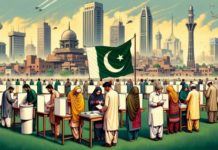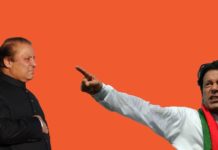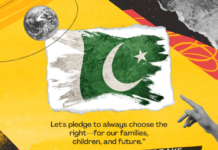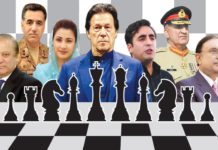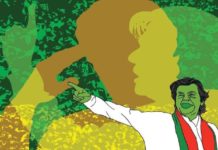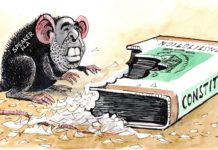Facebook is embroiled in political controversy in India. According to the Wall Street Journal, Facebook has helped the RSS and the ruling BJP, which is considered ideologically close to it. Now the opposition has taken an aggressive stance on the issue.
A report published in the Wall Street Journal last week, citing some current and former Facebook employees, claimed that the social media platform ignored hateful posts and sectarian content from BJP leaders and activists. Keep in mind that Facebook also owns WhatsApp and Instagram.
Question marks over Facebook’s claims of impartiality
Analysts say the allegations made by the Wall Street Journal on Facebook have raised questions about its claims of impartiality. The allegations have also raised suspicions on Facebook about the 2014 and 2019 election campaigns. In both these elections, the BJP had won a landslide victory.
Senior journalist and author Pranju Goha Thackeray reviewed the relationship between the BJP and Facebook in his book published last year. Thackeray says the results of the last two parliamentary elections have been heavily influenced by Facebook and WhatsApp. He told the BBC that the Wall Street Journal’s story only confirmed his investigation into Facebook’s role in India.
He says: ‘There are 400 million Facebook users and 900 million voters in India. Facebook allowed misuse of its platform in the country before, after and during the elections. Who the people voted for and how they voted has definitely had a big impact. In short, the way Facebook and WhatsApp are working today is a threat to democracy not only in India but all over the world.
Facebook’s double standard?
Critics say Facebook sets different guidelines for different countries. Facebook surrenders to the ruling parties in other countries, but in the United States, where it has its headquarters, it shows itself away from politics. This is its double standard.
Congress leader Rahul Gandhi has accused the Modi government of controlling Facebook and WhatsApp. He called on the joint parliamentary committee to investigate.
But senior BJP leader and Union Minister Ravi Shankar Prasad has defended the government. He said his government had no role in controlling Facebook or WhatsApp. Prasad tweeted: “The losers who can’t impress people in their own party are stating that the BJP and the RSS control the whole world.”
Facebook has denied the allegations in a statement issued from its headquarters in the United States. “We prohibit hate speech and content that incites violence,” the statement said. This is our policy all over the world. We are not supporters of any political party and we have no affiliation with it”.
However, Facebook acknowledges that much more needs to be done to avoid such issues. The company statement said: “We know that there is still much to be done in this direction. But we are moving towards a permanent audit of our actions and their implementation so that our impartiality and accuracy are not compromised.
Closeness between Facebook and BJP
Thackeray is not surprised at the news of the relationship between Facebook and the BJP government. He says: ‘Last year when I wrote a book on Facebook and gave details of the Modi government’s close relationship with it and WhatsApp, the media ignored it. Now that a foreign newspaper has raised the issue, there is a lot of interest in the media.
Thackeray told the BBC that the friendship between Facebook and Modi’s party BJP is very old. The two had a very good relationship before the Lok Sabha elections that brought Modi to power in 2014.
He said: ‘When Modi was the Chief Minister of Gujarat in 2013, there were very good relations between Facebook and the BJP. I have written about how some top Facebook officials worked with people close to Modi in the BJP’s IT cell, its social media wing and later in the PMO.
The Wall Street Journal quoted a senior Facebook official as saying that if the platform had taken action against hateful posts against BJP workers or violating other laws, the company’s business prospects in the country would have been hurt. The article also states that Facebook has a “detailed pattern” of supporting the BJP. However, the BJP is now denying the allegation that Facebook helped them.
Is Facebook a Threat to Democracy?
Political leaders in the United States and Europe have accused Facebook and other social media platforms of undermining the principles of democracy.
Harriet Hermann, chairman of the UK’s Human Rights Committee, said: “Parliamentarians in general are strongly acknowledging that what social media is doing is a threat to democracy.”
After many such cases, pressure is mounting on Facebook and WhatsApp to improve their work. Users on other social media platforms like Twitter are advising Facebook CEO Mark Zuckerberg to fix the flaws in his company in India. However, Twitter has also been accused of corruption.
Zuckerberg was recently criticized for not taking action against US President Donald Trump’s post. In the early days of Facebook, 30 employees wrote an open letter saying that Facebook’s refusal to moderate Trump’s post was not justified. It has pushed the American people into the dangers they have already seen. The letter accused Facebook of adopting a double standard.
Social media platforms have internal guidelines against hateful and violent content and they take action against them. But in this case, they rely on consumers to warn them against violating the rules.
Zuckerberg recently told Israeli historian Yual Noah Harari that a user’s privacy and freedom of expression are important to Facebook. But Harari disagrees. He said that in such cases, Facebook has left everything to the user. The company should take a step forward in these matters as the common man often does not know that he is being taken advantage of. He said that the average user does not even have the means to find fake news.
‘The purpose of social media is just to make money’
Thackeray says social media has no political or other purpose. Its sole purpose is to ‘make a profit and make money’.
Facebook has recently invested Rs 43,574 crore in Indian company Reliance’s Jio platform to further grow its business in India.
India is Facebook’s largest market in terms of number of users. It reaches 25% of the country’s population. By 2023, it could reach 31% of the population, while WhatsApp’s reach is even higher.



